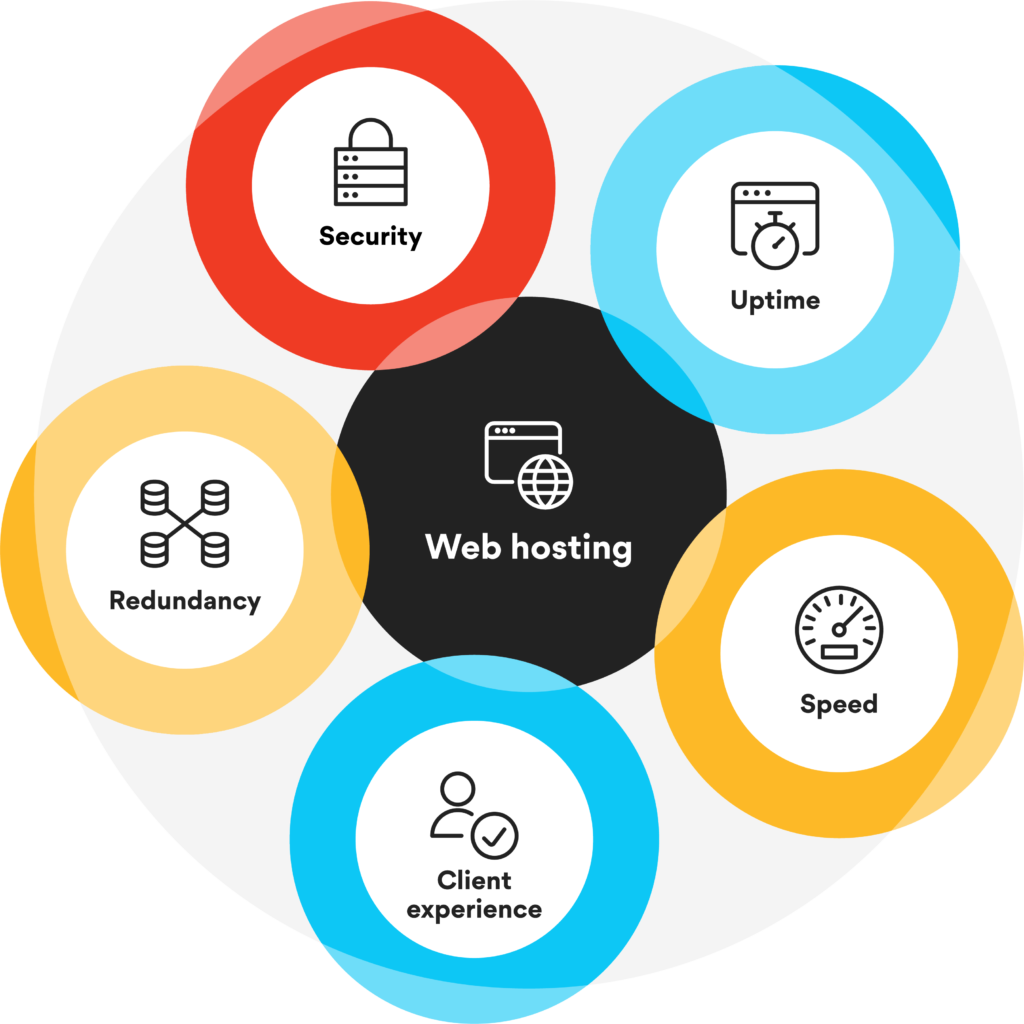Your web hosting infrastructure makes it possible for your website to be accessed by anyone on the World Wide Web. Though most web hosting services are capable of similar results, countless factors influence the performance, cost, and security of your website. A hosting assessment or audit can help you uncover opportunities for improvement.
What exactly is a hosting assessment or a hosting audit?
Hosting audits, on the other hand, go beyond just understanding how your site works. They can also identify how well your website is functioning, and what could be done to strengthen it. For example, a hosting audit could identify significant security risks, diagnose performance bottlenecks and issues, or even uncover opportunities for restructuring that reduce cost or complexity.
A hosting audit delivers a thoroughly documented breakdown of your entire ecosystem but, unlike a hosting assessment, produces actionable recommendations to elevate your website to its greatest potential.
Creating a best-in-class web hosting experience
While there are many areas to consider, here are a few of the more critical aspects to consider when deciding where to host your website.

Speed
The time it takes for your site to load is a crucial factor in the overall customer experience. A subpar setup can slow response times and can lead to frustrated customers.
While many factors contribute to site speed, the use of a content delivery network (CDN) can play a key role. A CDN distributes assets globally, making them more readily available to multiple geographic regions. Content delivery networks may also improve performance through content compression, such as Gzip or Brotli, image optimization or resizing, and resource caching.
Other hosting factors that may affect performance are hosting bandwidth, storage performance, database latency, and server load capacity, just to name a few.
Uptime
Uptime is a measure of the percentage of time your website is responsive and available to end-users. This can be a potentially misleading metric because even poor web hosts will deliver 99% uptime and, on the surface, appear acceptable.
However, if your website is down 1% of the time, that equates to over seven hours a month. If this occurs during peak hours, you will lose the equivalent of a business day. You wouldn’t want users looking for alternatives while your site is down—and potentially never coming back.
Redundancy
Redundancy often correlates with terms of worst-case scenarios, such as the total loss of your data and configurations. To prevent this, your web hosting provider should offer regular website and database backup options or, at the very least, offer manageable solutions for you to do this on your own.
Site redundancy may also include load-balancing capabilities. Load balancing allows your website to seamlessly handle a larger volume of requests concurrently. In other words, when user demand for your site increases, the system automatically rebalances those requests across additional (redundant) servers. This not only translates to improved site performance but the versatility to perform website or server updates while maintaining site uptime.
Security
While a secure website is of utmost importance, you know your hosting company is doing it well when you seldom have to think about it. The best hosts have patches and security fixes that are automated, so you don’t have to check for updates or run these programs yourself. This makes your site less work to maintain.
The level of security and compliance needed for your site should also be customizable to your organization’s needs. For example, a hospital site with sensitive customer data would have vastly different security standards than a brochure site.
Why we choose Azure for hosting
Great web hosting solutions are easy to use, easy to scale, easy to maintain, and offer the right products and services for your current and future business needs. At Ntara, we find all these traits with Azure, the service provider we use for our website. Our clients also have great success with Azure’s services because they offer so much versatility. Some of our favorite attributes include:
- A plethora of products and services
- Only pay for what you use
- Frictionless upgrades (all done behind the scenes)
- Excellent backup and redundancy options
- Highly configurable security features
- Monitoring tools and recommendations with machine learning
We like Azure because it’s simpler than other platforms we’ve tried yet far more scalable and adaptable. Billing is straightforward, itemized, and can be monitored in near real-time for cost projections to avoid unanticipated charges. Moreover, thanks to its cloud-based architecture, subscription ownership can be transferred quickly from one organization to another.
A robust hosting infrastructure is within reach no matter which technology you use. We also like that Microsoft uses its own Azure infrastructure and products for everything they make. They’re organically evolving these tools for themselves which translates to accelerated development of the very features you need. It’s “eating your own dog food” in all the best ways.
Choosing a hosting solution that is right for your business
Every business has unique considerations and challenges. Working with a provider who takes time to listen to your needs, learns the state of your business, and responds with appropriate recommendations allows you to focus on the things that matter most to your business.
At Ntara, we take pride in helping our clients achieve great results. Want to speak further about a hosting assessment? Drop us a line.